Wonder
 Wonder has its own beauty, an openness, a curiosity, a questioning. A freedom of mind, body and spirit to roam, to imagine, without force on either side of its coming and going in my life over recent months. Wonder is a pleasure of sorts. The tenor of my curiosity seems/is neutral at times (like putting pieces of a puzzle together), and it also exists within a context of unspeakable heart-brokenness and a shattering at the intersections of ancient grief, inflammation, and love. This, and wonder, are in relationship.
Wonder has its own beauty, an openness, a curiosity, a questioning. A freedom of mind, body and spirit to roam, to imagine, without force on either side of its coming and going in my life over recent months. Wonder is a pleasure of sorts. The tenor of my curiosity seems/is neutral at times (like putting pieces of a puzzle together), and it also exists within a context of unspeakable heart-brokenness and a shattering at the intersections of ancient grief, inflammation, and love. This, and wonder, are in relationship.
The wonder itself is focused on a different group of people than in Part II of this essay is about those in and out of government who knowingly engage in chronic lying and corruption, who bargain away integrity, democracy, the planet no less, for the personal gains and power they intend to accrue as lapdogs. Many of them in government could secure other well-paying employment, because of their skills and/or education. They could maintain their economic lifestyle, and would not fall into desperation.
It’s the pursuit of more and more that drives their stance. More money and visibility, more power and re-enforcement of supremacy systems. That is, to take us from “Me too,” and legal accountability for sexual abuse by powerful men, to women’s bodies knowing their place, the servicing of men’s desires and entitlement. From Voting Rights, Affirmative Action, and higher education that includes an understanding of how supremacy systems are infused into every aspect of our daily lives, to an escalation in threat to Black and Brown bodies, to know our place, servicing the claim that White people/whiteness are ‘superior’. From greater visibility of transpeople and opportunities to learn and understand that gender is not binary, in contrast to what we’ve been taught, to banning drag storytelling at libraries, surgeries for transpeople, books about LGBTQ+ people and increasing the threat to their lives.
The wondering centers around the primary question of, What is it like for a body to chronically carry known lies and known truth, to live full time with the enactment of greed and lawlessness and the pretense of being lawful and improving constituents’ quality of life? A body caring betrayal 24/7.
In recent years, the line between opportunism and sociopathy has thinned, in my eyes. Those who are sociopathic or desperate for survival are exempt from my wonder.
Is the body harmed by carrying known deceit and corruption? Is the known betrayal in every cell or limited to specific organs? Is the body stressed by this? How might harm appear? We may not know for some time or ever, but I think it would be an interesting piece of research. What I do know is that the body is wise to the reality of what it has done and had done to it, no matter what reframes or denials the mind may spin.
How do the bodies of these individuals of interest interact with their partners, their parents? How do conversations go? I imagine quite well, perhaps pride is engendered, if family members assess the personal gains to outweigh any costs. But what if family members are aghast at the values being forsaken, how does the disappointment and turmoil live in and between all their bodies? I imagine there’s a cost. If my adult children were to emerge as cruel, crooked, crass human beings, despair would sit like a tomb on my body.
But what I ponder most is how it works with parenting, for those raising children. Is there a contradiction between what these parents teach their children and what parents do? “Do what I say, not what I do.” “Get yours.” “Lies aren’t bad if they’re white ones.” Or “Honesty is a virtue I want for you, and how I live my life.” What happens inside a parent’s body, living this? Is lying to one’s children as viscerally comfortable as lying to the public? Is there no thought that their children will become aware at some point of their parent’s base trade?
I wonder too about those who know the Earth’s temperature and scorched forests are rising, the Arctic ice melting, the coral bleaching, and yet deny climate change. Do they give thought to their young children, their grandchildren? As they butcher regulations designed to limit the use of fossil fuels, the disposal of toxic chemicals or byproducts into the soil, air, and water, do they consider the quality of breath their offspring and their offspring will have, whether their lungs will inflate at all? What tricks of mind allow them to barter the lives of their own flesh and blood? What is it like for a parent’s body, one not shallowed by sociopathy, to perpetrate a deceit that threatens their own offspring? Does the body mourn in spurts or slowly; does it grow ill? Does it juggle shame like a hot potato?
I can’t imagine that bodies asked to hold truth and lies of corruption aren’t sacrificed in some way, as vessels connected to mind and spirt, and to the flow of energy moving through or stuck in them. The quality of that energy is also in the mix. But perhaps this group of people is banking on seats for them and their family on private space shuttles they can afford. Having poisoned Earth and all life on it, they may feel excited about a new frontier, an opportunity to colonize anew, taking and taking.
I just wonder.
What I know for sure is that such bargains are a reflection of individual choices, and a culture, a way of life that gives lip service to one thing, but defines self-worth and accomplishment in terms of personal power used to dominate, and enrich oneself. A truth, a discrepancy, to be silenced, obscured and unexamined. As Ta-Nehisi says in his book, The Message, that is exactly what education in many schools is designed to do, disseminate information from a singular lens, to be swallowed and regurgitated. Critical thinking and the inclusion of multiple lens as data sources jeopardizes the given normality of injustice and the blanket acceptance of implicit and explicit assumptions. 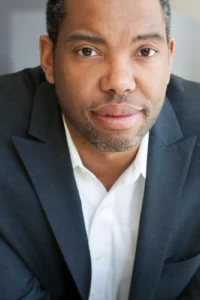
Afterword:
Throughout the writing of this piece I’ve thought of so many examples of this behavior; the way money from the NRA paid to political campaigns trumps the saving of lives via regulation, the way money to be made by pharmaceutical companies selling and promoting opioids as non-addictive, trumps the well-being of millions of people, many of whom are privileged by race and gender but not by class. Bernie Maddox popped up as well. His bargain fractured the lives of many families, including his own. The oldest son, Mark committed suicide on the 2nd anniversary of his father’s imprisonment (https://www.nytimes.com/2010/12/12/business/12madoff.html?smid=url-share), his brother Peter spent ten years in jail, and both Bernie and his wife attempted suicide after their sons reported Bernie to the authorities (https://www.nytimes.com/2011/10/27/business/madoffs-tried-to-commit-suicide-wife-says.html?smid=url-share), leaving his sons to bear the shame he apparently did not experience. This provides some support to my belief that such bargains can create major harm to the bargainer and their family. Enslavers did not come up for wonder because I believe the perpetration of White supremacy was a forerunner of slavery, not an aftermath, and so I don’t see enslavers’ bodies as carrying known deceit about our humanity, the beauty of our communal traditions, and the brilliance of our creations. They were ignorant of such and believed or tried to believe in their superiority..
I remain in the dark about why this wonder arose only now.
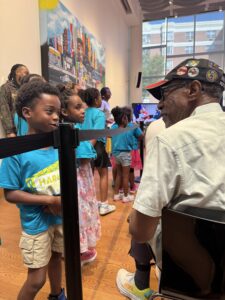
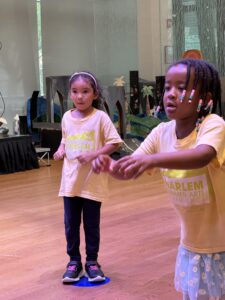 Pride owned the spacious room. The kind that’s soft and embracing in the cheering, and the loud and long clapping from the audience, for all the children. Not the sharp-edged kind of pride, delivered from a competitive eye that compares one’s child or grandchild to another to note how their loved one did better than another.
Pride owned the spacious room. The kind that’s soft and embracing in the cheering, and the loud and long clapping from the audience, for all the children. Not the sharp-edged kind of pride, delivered from a competitive eye that compares one’s child or grandchild to another to note how their loved one did better than another.
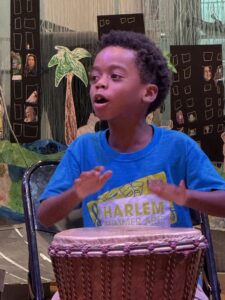

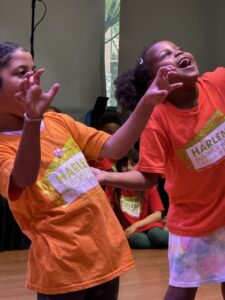
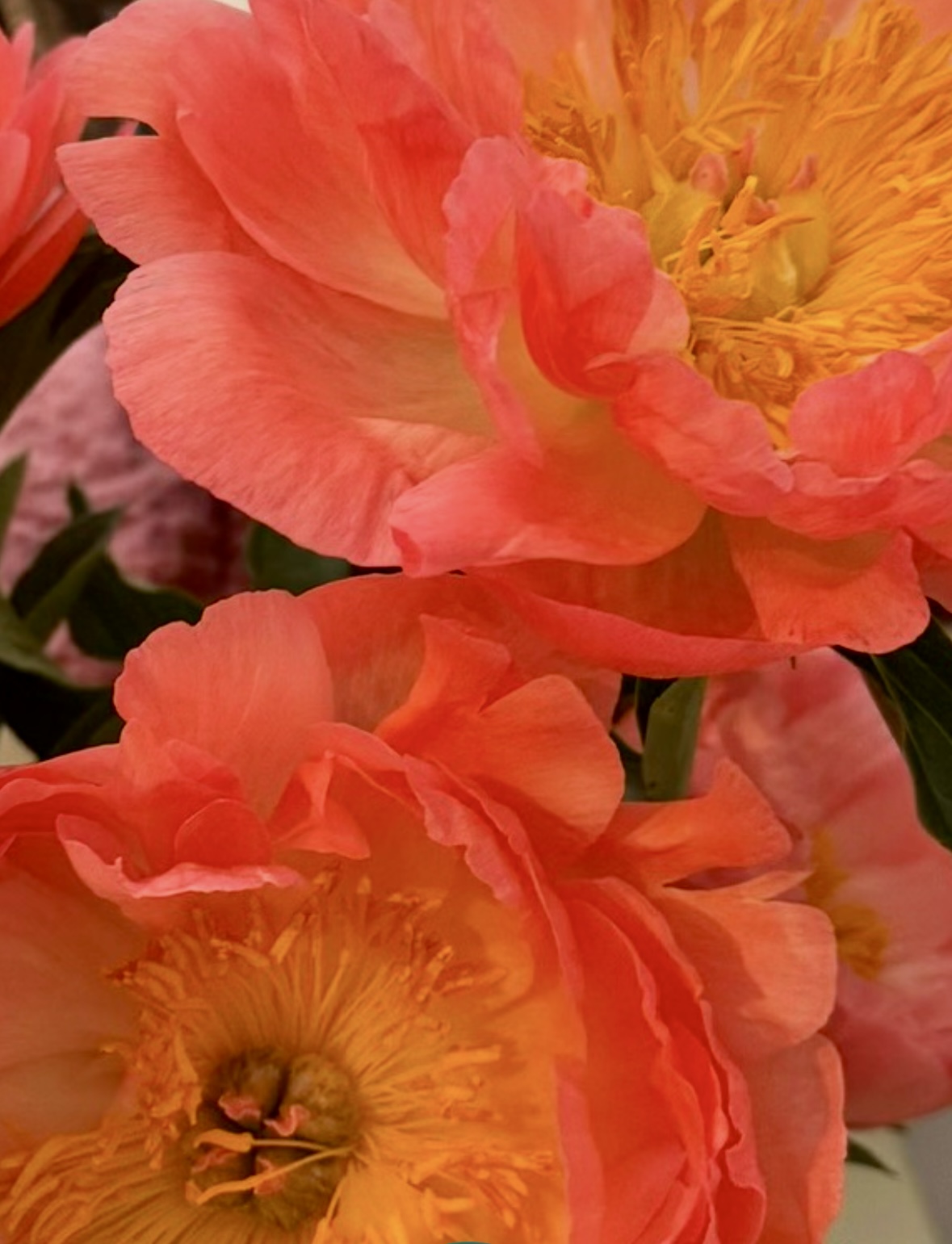


 Wonder has its own beauty, an openness, a curiosity, a questioning. A freedom of mind, body and spirit to roam, to imagine, without force on either side of its coming and going in my life over recent months. Wonder is a pleasure of sorts. The tenor of my curiosity seems/is neutral at times (like putting pieces of a puzzle together), and it also exists within a context of unspeakable heart-brokenness and a shattering at the intersections of ancient grief, inflammation, and love. This, and wonder, are in relationship.
Wonder has its own beauty, an openness, a curiosity, a questioning. A freedom of mind, body and spirit to roam, to imagine, without force on either side of its coming and going in my life over recent months. Wonder is a pleasure of sorts. The tenor of my curiosity seems/is neutral at times (like putting pieces of a puzzle together), and it also exists within a context of unspeakable heart-brokenness and a shattering at the intersections of ancient grief, inflammation, and love. This, and wonder, are in relationship.
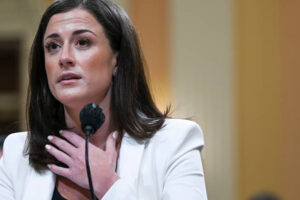
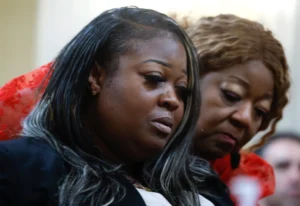 Unlike some who believe winning is everything, I do not. Even though our candidates lost, there is still value in expressing deep gratitude for the effort and sacrifice many made, known and unknown, on behalf of going forward, not backwards. I think of the judiciary and their staff in New York City, D.C. and Atlanta who braved holding the line for judicial integrity, equity, and accountability for lawlessness, no matter the defendant’s acreage and power. D.A. ‘s Alvin Bragg, Fani Willis, Laticia James, Judges Merchan, Chutkan, Engoron, to name a few. I thank their families too, who lived the fear with them. My heart goes out especially to Jack Smith, all the time and excellence he and his team put into their legal cases, despite the menacing behavior they and their families endured, to no avail. Last but not least, a deep bow to Kamala and Tim, who represented the best of humankind; the exception, their veto of a Palestinian voice at the DNC while welcoming the voices of a Jewish couple. Kamala and Tim crisscrossed the nation multiple times a day offering agendas beyond their personal gain –democracy, inclusiveness, breakfast programs for kids, a woman’s right to live, make decisions about her body, and affordable housing and medication.
Unlike some who believe winning is everything, I do not. Even though our candidates lost, there is still value in expressing deep gratitude for the effort and sacrifice many made, known and unknown, on behalf of going forward, not backwards. I think of the judiciary and their staff in New York City, D.C. and Atlanta who braved holding the line for judicial integrity, equity, and accountability for lawlessness, no matter the defendant’s acreage and power. D.A. ‘s Alvin Bragg, Fani Willis, Laticia James, Judges Merchan, Chutkan, Engoron, to name a few. I thank their families too, who lived the fear with them. My heart goes out especially to Jack Smith, all the time and excellence he and his team put into their legal cases, despite the menacing behavior they and their families endured, to no avail. Last but not least, a deep bow to Kamala and Tim, who represented the best of humankind; the exception, their veto of a Palestinian voice at the DNC while welcoming the voices of a Jewish couple. Kamala and Tim crisscrossed the nation multiple times a day offering agendas beyond their personal gain –democracy, inclusiveness, breakfast programs for kids, a woman’s right to live, make decisions about her body, and affordable housing and medication.

 The provisos notwithstanding, touch, as a genuine expression of affection, is magnificent.
The provisos notwithstanding, touch, as a genuine expression of affection, is magnificent.